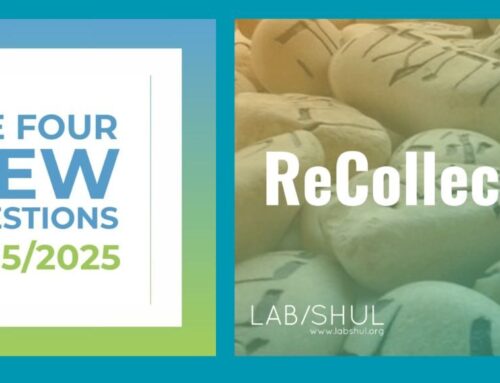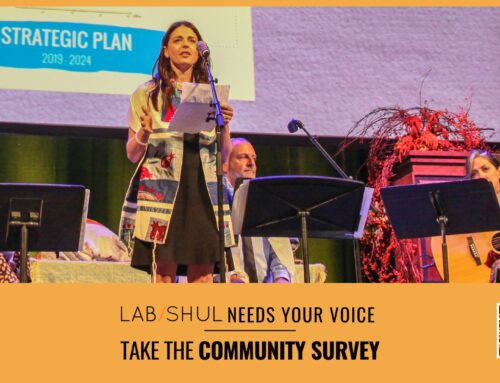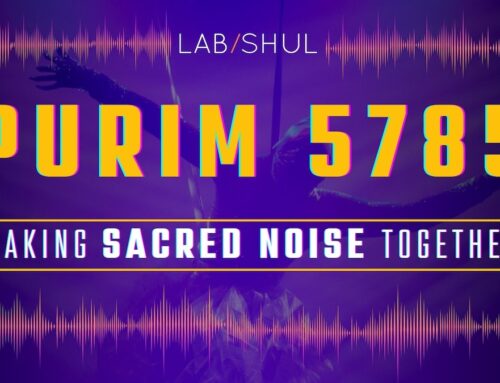Tuesday was a weird day to be a Jew. A day when 3 people were murdered in a kosher market, when an Executive Order called the nature of Jewish identity into question, and when, after being away from my phone for a few hours, I came back to discover that a quick tweet I posted had gone viral.
First, there was a shooting in Jersey City – a tragic normalcy in these United States due to our refusal to treat the epidemic of gun violence as preventable. When I heard, my deepest concern was the proximity. I know people who live and work in Jersey City. Was someone I knew hurt? Was someone I knew dead? Was the shooter a person of color who might lead to even more racist rhetoric? Then, the location came to light: a kosher supermarket. Oh God. Antisemitism? No. A drug bust gone wrong, we were told at the time. Frightening and horrible but not a hate crime.
Then, there was the New York Times article:
I read it. I saw that the summary didn’t entirely reflect the content. The president did not declare Judaism to be a “nationality” but rather grouped protection of Jews under the same status as races, ethnicities, and nationalities. He did not protect us as a religious group.
And yes, the Executive Order frightens me– not because I think it’s a precursor to the destruction of Jewish people in America, but because it reinforces the “othering” of Jews that this administration has coaxed from the start. How many times have I heard the president imply that any Jew who doesn’t support him is a bad Jew? He declared just a few months ago: “In my opinion, you vote for a Democrat, you’re being very disloyal to Jewish people and very disloyal to Israel.” At best, Trump conflates Jewish identity with Zionism and vastly oversimplifies the multitude of ways in which Jews Jew.
I wrote a tweet to that effect. Somehow, of the many reactions to this news article, mine took hold. It seemed that many people liking, retweeting, and replying to my tweet had not read the article. They saw the words “Jews” and “Nationality,” thought of Hitler and the multitude of moments in our history when Jews went from being part of a society to its scapegoats, and they freaked out. I can’t blame them.
As my words were shared again and again, I was called a fake Jew and a good Jew and a bad Jew and a dumb Jew, approached for spiritual advice, approached by reporters, and asked to explain the nuance of Trump’s Executive Order and the “dual loyalism” narrative it perpetuated.
Everyone wanted to talk about what Jews are. Are we a religion? Are we a nation? Are “people” and “nation” synonymous? Can one be a Jew without being a staunch supporter of the state of Israel? What was the base of our fear?
Mostly? I wanted #Judaism to stop trending in this context. I wanted my private messages to quiet down. I wanted zero notifications. I wanted to mourn the latest victims of our nation’s horrific gun laws and do what I could to protect friends and colleagues who are Jews of Color from the inevitable backlash against People of Color in Jewish spaces.
The next morning, there was an update about Jersey City: the murdered rabbinical student, shopkeeper, and shop employee were indeed targets of antisemitism. The details are still unclear, but we know the initial fears many Jews had when they heard the location of the shooting were realized. The Kosher Market had not been random. Jews, and an employee of Jews, were dead because of antisemitic views.
I was gutted, and I turned to our text– classic rabbi move, yes, but sometimes our ancestors’ struggles truly do speak to the present. I was comforted to find that Jacob, our ancient wrestler, was frightened this week.
וַיִּירָ֧א יַעֲקֹ֛ב מְאֹ֖ד וַיֵּ֣צֶר ל֑וֹ וַיַּ֜חַץ אֶת־הָעָ֣ם אֲשֶׁר־אִתּ֗וֹ וְאֶת־הַצֹּ֧אן וְאֶת־הַבָּקָ֛ר וְהַגְּמַלִּ֖ים לִשְׁנֵ֥י מַחֲנֽוֹת׃
וַיֹּ֕אמֶר אִם־יָב֥וֹא עֵשָׂ֛ו אֶל־הַמַּחֲנֶ֥ה הָאַחַ֖ת וְהִכָּ֑הוּ וְהָיָ֛ה הַמַּחֲנֶ֥ה הַנִּשְׁאָ֖ר לִפְלֵיטָֽה׃
Jacob was greatly frightened; in his anxiety, he divided the people with him, and the flocks and herds and camels, into two camps, thinking, “If Esau comes to the one camp and attacks it, the other camp may yet escape.” (Gen 32:8-9)
It’s a moment of truth for Jacob. Years after leaving home– running from the brother he stole from– he’s returning. He doesn’t know what to expect, how he and his family will be received, if there is a path forward. So he splits his family, upping the odds of survival if, indeed, his fears are realized and his brother is out for blood.
Well, Great Great Grandpa Jacob, we’ve got far more than two camps now. Each has its ideas about how best to survive and thrive. Each camp, through the generations, has changed its name. And each camp, at this moment, is afraid of loss– just like you were.
Some of us are Jews of Religion. Some of us are Jews of No Religion. Some of us believe that we are a People. Some of us believe that we are a Nation. Some of us believe that we are all meant to be in the state of Israel. Some of us think that Israel is an apartheid state. Some of us are believers. Some of us are atheists. Some of us are combinations. For many of our camps, there seems indeed to be more that divides than unites.
Yet all of us, like you, Jacob, are heading towards a future that we don’t quite know. Heading to a river we’ve never crossed in precisely this season. There are rapids, and there’s not exactly a bridge, and we only have ideas of what might be waiting on the other side— but we’re going. We keep moving. Because, through heartache and fear, through religion and peoplehood and culture, our many camps live. Our people lives. Jacob lives. We, wrestlers with life, live.












